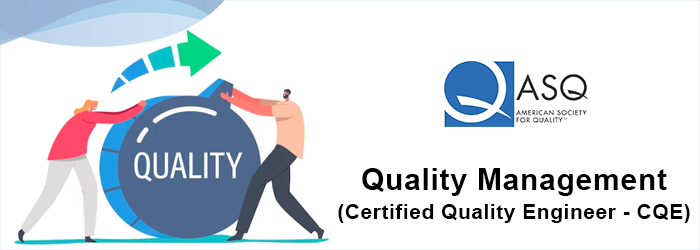

The Certified Quality Engineer (CQE) certification is offered by the American Society for Quality (ASQ) and is designed for individuals who have a strong background in quality engineering and quality control. The CQE certification demonstrates proficiency in applying quality engineering principles and practices to improve processes, products, and systems.
Remember, these percentages represent the approximate distribution of exam questions in each content area. To prepare effectively for the CQE exam, candidates should study these topics thoroughly using ASQ-approved materials and resources.